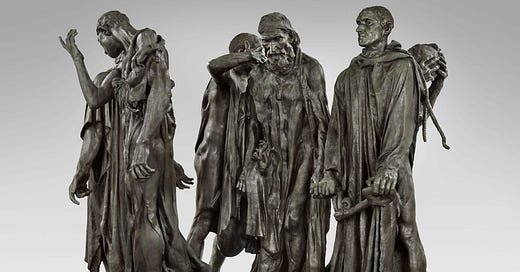Perhaps you know already that we are all connected, you and your loved ones and your community and all living beings, everywhere. Perhaps you have had transcendent experiences of connection, or more mundane experiences when you simply know things that could not have come from your senses. For mystics, this is a core truth. For scientists and skeptics, you may be interested to acquaint yourself with a robust body of experiments in parapsychology. (I recommend books by Elizabeth Mayer, Dean Radin, and the PEAR lab of Princeton University.) Telepathy, precognition, and remote viewing are real and verifiable phenomena, though most scientists have refused even to look at the data. Our thoughts and our emotions are not necessarily generated by our individual brains. There is empathy, thought-sharing, a collective unconscious.
Why, then, do we experience ourselves as separate individuals? If separation is an illusion, it is certainly a compelling and persistent illusion. For most of us, most of the time, we look out on the world from the vantage of an isolated individual. To imagine otherwise often requires a leap of faith. It may not feel easy or natural.
Part of the reason for this is that out English-speaking culture is profoundly isolating. We have been raised with rewards and punishments aimed at a separate, autonomous self. Our legal system is based on private ownership and individual responsibility. Our capitalist economy caters to individual consumption and rewards selfish ambition. The kind of understanding that our science offers is based on separating a real and connected world into simple, constituent parts. We have settled into the niche that our community has conceived for us, and we have become the individual that we were expected to be.
There is only one consciousness in this universe. We cannot know why that consciousness has fragmented into creatures like us and the tadpole and the aspen forest, why we should feel so separate, or why the experience of other people (and other beings) can be so different from our own. Why do we know our own experience so vividly, and the experience of others as a distant, empathic echo?
But we can be sure that our journey is for reunion. Connection, deepening connection, dissolving in connection is our purpose in this sojourn.
All religions, all spiritual disciplines counsel us to help others. In the Judeo-Christian literature, this can feel sanctimonious. We are told to obey The Law, even when it is difficult, especially when it is difficult. They tell us that our suffering will ennoble us, or that it will get us into heaven.
But fear of punishment, modulating our actions according to rules imposed from the outside, doing what is right by force of will – this is not a healthy way to live. The other-directed life can lead to depression and even to physical disease.
A better motivation for the life of service is that we want so much to feel love. Love is the deepest, most fulfilling experience of which we humans are capable. We come to love by grace, and not by force of will. But the surest path to experiencing love is to act in a loving way. “Fake it till you make it.” Caring deeply for another being always begins with listening deeply, getting to know another’s experience, another’s desires and dreams, another’s strong heart and another’s inner struggles. The more we know, the more we love, and it is this love that allows us to feel whole.
As we endure the pain of separation, acts of love and caring are a consolation, and they offer us the promise and the vision of reunion. With persistence and with grace, we may experience the love for which we were made, the love which is our deepest nature.





Beautiful, Josh. I fully agree.